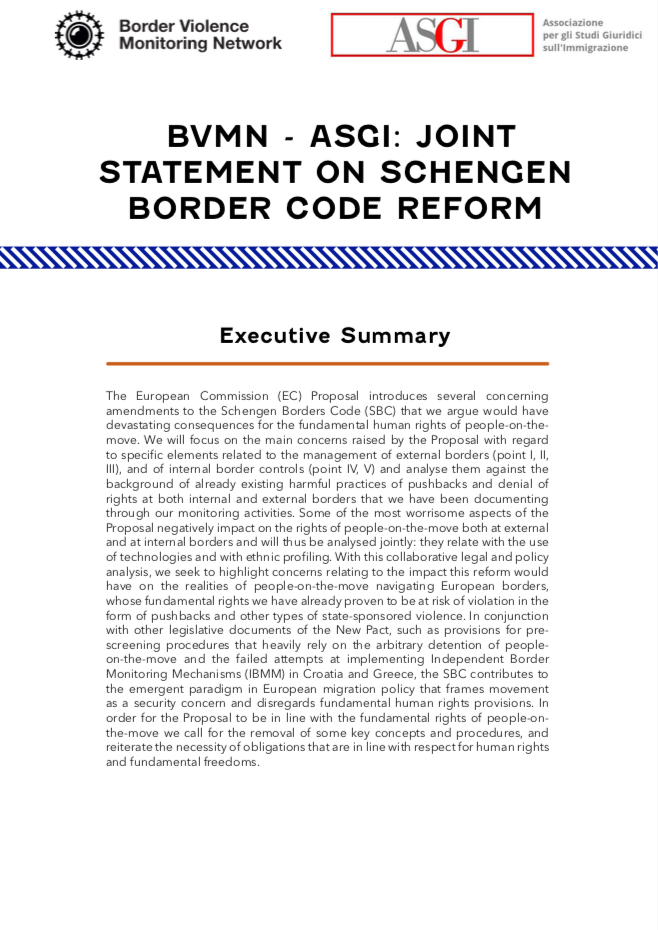The European Commission (EC) Proposal introduces several concerning amendments to the Schengen Borders Code (SBC) that we argue would have devastating consequences for the fundamental human rights of people-on-the-move. We will focus on the main concerns raised by the Proposal with regard to specific elements related to the management of external borders (point I, II, III), and of internal border controls (point IV, V) and analyse them against the background of already existing harmful practices of pushbacks and denial of rights at both internal and external borders that we have been documenting through our monitoring activities. Some of the most worrisome aspects of the Proposal negatively impact on the rights of people-on-the-move both at external and at internal borders and will thus be analysed jointly: they relate with the use of technologies and with ethnic profiling. With this collaborative legal and policy analysis, we seek to highlight concerns relating to the impact this reform would have on the realities of people-on-the-move navigating European borders, whose fundamental rights we have already proven to be at risk of violation in the form of pushbacks and other types of state-sponsored violence.
In conjunction with other legislative documents of the New Pact, such as provisions for pre-screening procedures that heavily rely on the arbitrary detention of people-on-the-move and the failed attempts at implementing Independent Border Monitoring Mechanisms (IBMM) in Croatia and Greece, the SBC contributes to the emergent paradigm in European migration policy that frames movement as a security concern and disregards fundamental human rights provisions. In order for the Proposal to be in line with the fundamental rights of people-on-the-move we call for the removal of some key concepts and procedures, and reiterate the necessity of obligations that are in line with respect for human rights and fundamental freedoms.

